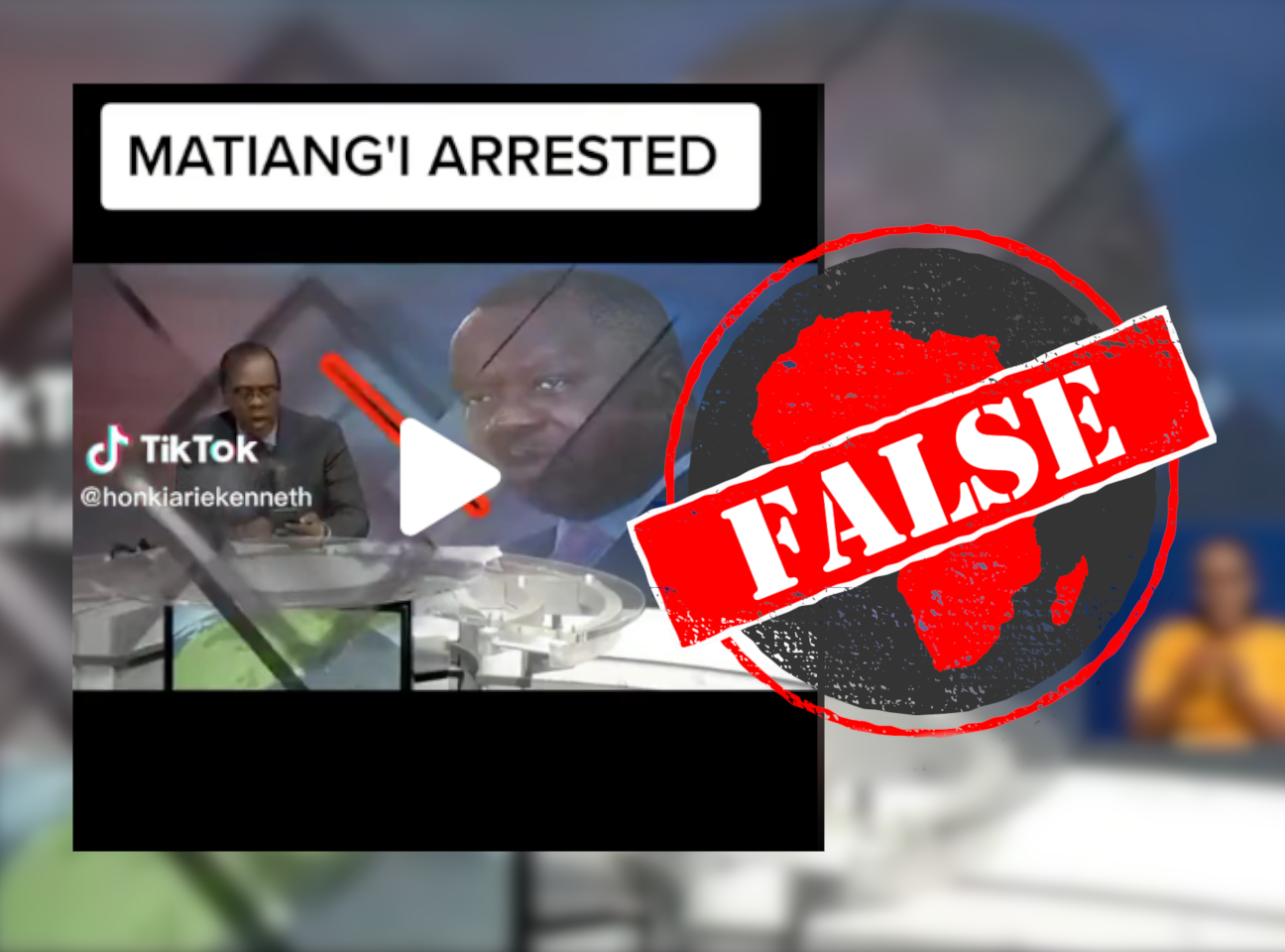IN SHORT: Social media in Kenya has been awash with claims that the influential pair have been arrested. But these arrest claims are unsubstantiated.
There have been multiple posts across Kenyan social media in February 2023 claiming that the country’s former powerful cabinet secretary (CS) for the interior, Dr Fred Matiang’i, has been arrested.
Some claims add that former prime minister Raila Odinga was also arrested. This “breaking news” video is captioned “Matiang’i arrested” and appears to show unedited footage of a broadcast from Citizen TV, Kenya’s most watched broadcaster.
It has received over 1,000 comments. One of the most liked comments reads: “Ruto is now after revenge instead of delivering his manifesto.”
Another video claims to disclose why the former CS was arrested and yet another has captions claiming Kenyan president William Ruto ordered Matiang’i’s arrest.
This post on Facebook includes a grainy photo of a police car, apparently taken at night, and reads: “Breaking News!! Police officers have finally arrested former interior CS Fred Matiang'i…”.
But were either Odinga or Matiang’i arrested?

Clues arrests didn’t take place
On the night of 8 February, there were news reports that Matiang’i’s house had been surrounded by an elite team of police officers.
Citizen TV reported this breaking news towards the end of their 9 pm news broadcast. Other national media stations such as NTV and KTN also posted about this on their social media accounts. These claims were later followed up with footage of Odinga at Matiang’i’s home, condemning the government for the night raid.
Matiang’i’s lawyer Danstan Omari was recorded saying that the CS’s life was in danger, and that they had a team of more than 200 advocates to defend him. Other former and current political leaders affiliated with the opposition also made their way to the scene.
The Citizen TV broadcast has been used as evidence for the claim that Matiang’i was arrested. However, the news report did not actually say that the former CS was arrested. It only mentioned that his house was surrounded by police officers.
At time of writing there is no credible evidence that either the former prime minister or the former CS were arrested, which would be national and international news.
Evidence shows otherwise
There is instead evidence to suggest otherwise. On the day following the reports of police activity around the former CS's house, Odinga was seen attending a meeting of his coalition party.
On the same day Matiang’i's lawyers were in court seeking anticipatory bail, which was granted on 10 February. Anticipatory bail is a precaution taken when someone fears they might be unfairly arrested without the chance to defend themself.
The accuracy of the initial reports that the former CS’s house was surrounded by police is also in question. The government has denied those claims. The current interior CS, Kithure Kindiki, said that he had confirmed with the heads of the national police, the Ethics and Anti-Corruption Commission, the national revenue authority and all law enforcement agencies that none of them had instructions to arrest the former interior CS.
The director of criminal investigations also said that they were investigating the matter, and that none of their officers had been deployed to arrest Matiang’i. He said the reports of a raid were staged and false.
While there is public confusion about what happened on 8 February, claims of the arrests of the former CS and the former prime minister are untrue.
Republish our content for free
For publishers: what to do if your post is rated false
A fact-checker has rated your Facebook or Instagram post as “false”, “altered”, “partly false” or “missing context”. This could have serious consequences. What do you do?
Click on our guide for the steps you should follow.
Publishers guideAfrica Check teams up with Facebook
Africa Check is a partner in Meta's third-party fact-checking programme to help stop the spread of false information on social media.
The content we rate as “false” will be downgraded on Facebook and Instagram. This means fewer people will see it.
You can also help identify false information on Facebook. This guide explains how.


Add new comment